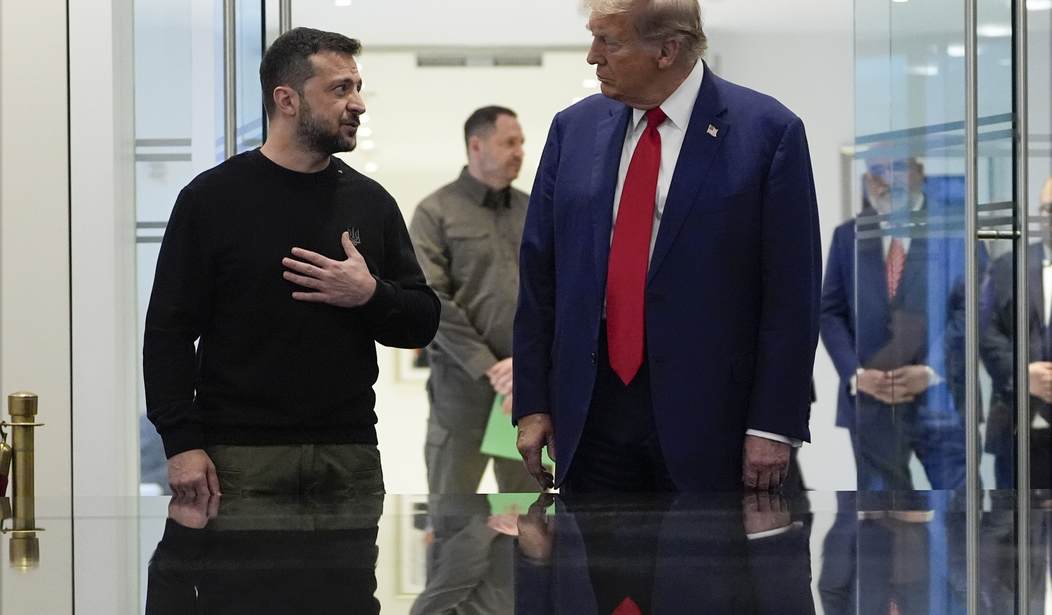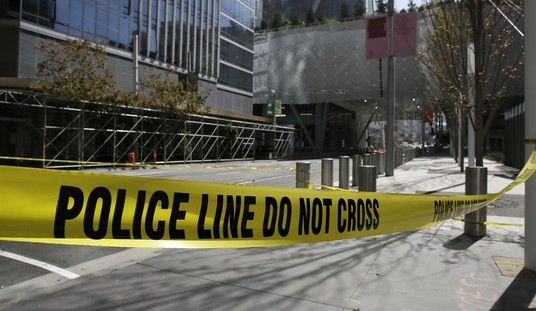Making peace in the Ukrainian theater of war might appear to be a hapless task after decades and more of regional hostilities. The issue is immensely complex, as witnessed in the fate of the two Minsk Accords which sought to end the unresolved Donbas war beginning in 2014, fought between armed Russian separatist groups and the Armed Forces of Ukraine over the status of the Donetsk and Luhansk oblasts. Parties to the conflict routinely violated the ceasefire arrangement, accusing each other of starting the fighting, ultimately rendering the Agreements null and void.
According to the Chatham House Policy Institute, the Minsk Agreements, in particular the second, are fundamentally contradictory documents. “Minsk II makes the return of the border to Ukrainian control contingent on a political settlement agreeable to Russia and its proxies. However, it also includes provisions favouring the re-establishment of Ukrainian control over Donbas before a settlement has been finalized.” These are mutually exclusive views of sovereignty, which the Institute describes as the ‘Minsk conundrum’. Minsk was dead in the water before it was even launched.
And today, in an ongoing war of attrition that has produced immense casualties on both sides and destabilized Western alliances, many advise President Trump to follow a script that has proven disastrous, with which he refuses to comply. Settling the dispute won’t come easy.
Trump is saddled with two Ukrainian problems. The first is obvious: making peace in a local and heavily partisan conflict, steering Ukraine to a recognition of its comparatively weak position in a war it cannot win, and the necessity of its accepting unfavorable provisions to underwrite a cessation of hostilities. The second is coming to terms with a competing superpower, a proud and thus far relentless Russian Federation that, whether we wish to admit it or not, is not a mere Potemkin empire as many would like to believe and has real and legitimate security interests.
To begin with, is Volodymyr Zelenskyy a true and reliable ally whom Trump feels he can trust in arranging for a tenable armistice? Apparently not. Indeed, Trump is highly suspicious of Zelenskyy. “Zelenskyy better move fast or he is not going to have a Country left,” he warns. “Biden never tried, Europe has failed to bring Peace, and Zelenskyy probably wants to keep the ‘gravy train’ going. I love Ukraine, but Zelenskyy has done a terrible job, his Country is shattered, and MILLIONS have unnecessarily died – And so it continues…”
Trump has good reason for his suspicions. See, for example, Tucker Carlson's interview with international lawyer Robert Amsterdam, an exposé of Zelenskyy’s dictatorial practices, violence, and endemic corruption. Amsterdam accuses Zelenskyy of running a police state and having spent a fortune of American cash hiring a top Washington PR firm to convince the world of his bona fides. According to Times New World (Feb. 23, 2025), former Zelenskyy aide Oleksiy Arestovych and Kyiv Mayor Vitali Klitschko have accused Zelenskyy of “authoritarianism and mismanagement of the war against Russia. Arestovych vowed to imprison Zelenskyy for life if he gains power, alleging that the president sacrificed ‘tens of thousands’ of lives to maintain his grip on authority. Klitschko has also criticized Zelenskyy’s administration for abusing martial law to interfere with local governance.”
Nonetheless, the talking heads are up in arms. As Roger Kimball observes, “The fate of Ukraine is one of those subjects that seems automatically to induce moralist posturing all around. Donald Trump’s comments about Ukraine and Zelenskyy sent the commentariat (and Zelenskyy himself) around the bend. But what if it was a gambit designed to bring about the peace he promised to bring to the region? And what if, despite the grumbling and grandstanding of the talking heads, it succeeds?”
The Solons aren’t listening. Richard Fernandez, who in an otherwise data-rich article with a solid grasp of the economic issues involved, argues that the Russian army “is probably unequal to the task of subduing all Ukraine and frightening NATO out of Eastern Europe. That geopolitical goal is beyond reach,” concluding “What is left to Putin is the possibility of cashing in his chips” I am not so sure.
The media have been assuring us from the beginning that Russia was suffering vast casualties, that it was approaching economic collapse, that Putin was increasingly unpopular at home, that the army was under-equipped, running out of cannon fodder, and retreating before Ukrainian counterattacks, etc., etc., yet Russia remains strongly ensconced, looks as if it can continue to advance, and Putin is defiant and confident. The EU and NATO are in no position to mount credible pushback and both the American supply chain and monetary expenditure are under stress. It is not clear who is at a disadvantage.
Meanwhile, historian Niall Fergusson asserts that Trump may be moving toward a policy of appeasement and is giving up too much negotiation leverage. Columnist C.A. Skeet similarly believes that Trump is walking into a “Chamberlain blunder,” intent on appeasing Russia in his “desire to make peace just for the sake of saying you were able to make peace…We're giving Putin an easy out when we should be funding the continual degradation of his country's power and influence. It's called war by proxy.”
Thus, according to these experts, we should continue funding the wholesale slaughter of both Ukrainians and Russians, a prospect likely to end either in a Russian victory or World War III. This is what we might call the real “Chamberlain option,” a foolish decision promoted by Russophobes leading to protracted warfare and enormous casualties—all in the vain hope of teaching Putin a lesson. There are so many bees in these folks’ bonnets that they should best undergo a period of fumigation or shop for new headgear. No matter which way we look at it, it’s still Russia Russia Russia. As Henry Kissinger pointed out, “The demonization of Vladimir Putin is not a policy, it is an alibi for the absence of one.”
Vice President JD Vance’s response to Fergusson is on the money. “[W]e're not going to telegraph our negotiating posture to make people feel better. The president is trying to achieve a lasting piece, not massage the egos or anxieties of people waving Ukraine flags… it's not appeasement to acknowledge the realities on the ground.” After all, Trump is not Biden, and Putin knows that. What too many of our savants seem to forget is that there are three major factors Trump must take into account: Russian nukes — one tactical nuke is enough to blow up the cognoscenti urging further investment in the war; current Biden-generated American debt and near-insolvency, only now under Trump being addressed; and China, the other elephant in the room and a much beefier one than Russia.
Trump plainly has far more on his plate than just Ukraine. It’s probably obvious by now that Trump wishes to distance Russia from the BRICS consortium, whose agenda is to replace the U.S. dollar as the world’s reserve currency. The president is not only committed to ending the war but is also meditating on re-admitting Russia into the “community of nations,” that is, the G8 partnership, in order to dismantle its increasingly proximal relationship with Communist China.
Just as Bush failed to realize during Operation Desert Storm that America’s foremost threat was not Iraq but Iran, so Trump’s critics and cavillers do not seem to understand that America’s fundamental geopolitical rival is not Russia, it’s China. The aforementioned C.A. Skeet deserves credit for recognizing in a subsequent article the menace of the China dragon and a consequent Russian incentive for entering a working relation or strategic alliance with the U.S., although his floating the plausibility of Chinese annexation of parts of Eastern Russia is manifestly overwrought. Nuclear powers do not invade one another’s territory.
Biden’s attempt to destroy Russia economically and isolate it on the world stage backfired big time to America’s cost, and Trump is now trying to repair the damage to America’s prosperity, security, and world position. Consequently, at the same time that Trump is working to restore peace to a war-ravaged and tinderbox region — to establish a durable “Minsk Accord” — his preeminent initiative is to halt America’s fiscal and geopolitical decline and reclaim its global preeminence. To do so requires a feat of magisterial diplomacy to revive a working rapport with a powerful adversary while eroding its liaison with another — it’s called realpolitik — all the while maintaining a posture of determined strength.
This is a policy that flows from maturity, not accommodation. It is, as noted, the very opposite of Chamberlain-like propitiation. Chamberlain’s feebleness and gullibility gave us six years of war and sixty million dead. Trump’s muscularity and deal-making intelligence will settle the conflict within, let us say, the parameters of possibility.
Indeed, negotiations seem to be bearing fruit. The overall situation is not ideal, but everyone will get something. Russia will get the Donbas, the U.S. will reap a portion of Ukraine’s lucrative rare earths reserve to replenish an aid-depleted treasury, and Ukraine will have a country (however truncated), peace, a guarantee of security, a revitalized economy and a new election ousting a corrupt, histrionic and avaricious president. And the world will have been spared precisely what Chamberlain brought upon it. And yet people keep sniping at Trump, who is the only major political figure up to so monumental a task.
Trump has a lot of medicine balls to be juggling to reach a viable resolution, a challenge that the virtuosi generally misconceive. Regrettably, even some of his intellectual friends and quondam supporters do not seem to have learned that Trump is considerably smarter than they are.









Join the conversation as a VIP Member